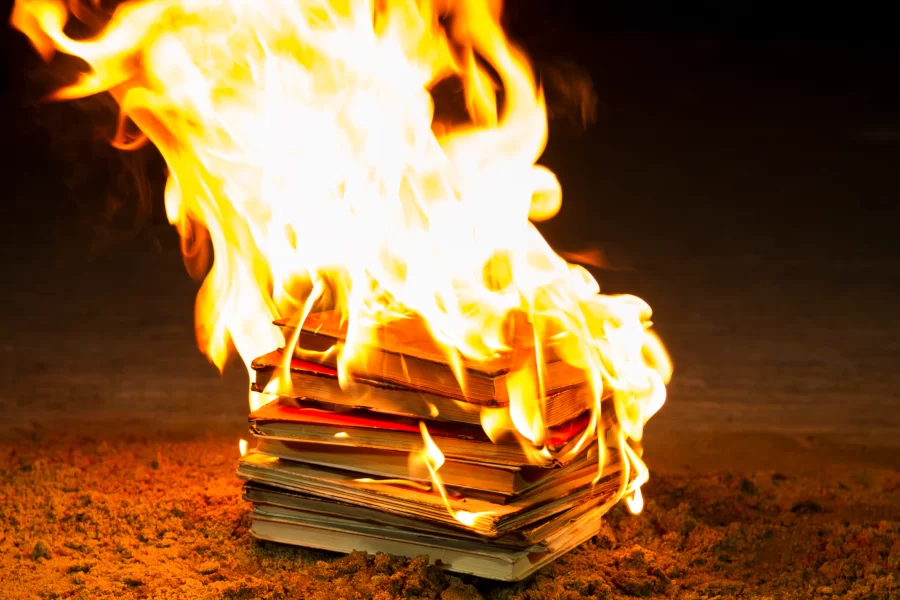Book Banning Allows Censorship of Controversial Topics
The rising debate on banning books across the country has pitted school libraries, students, parents, and legislators against each other. The 2022-2023 school year has brought more book bans and challenges than was seen in any past years, and the arguments surrounding the bans create an insoluble whirlwind of buzzwords such as “pornography”, “fascism”, “culture-war”, and “indoctrination”, which make it difficult to understand what exactly representatives are trying to protect children from. Many of the most challenged and banned books reported on by associations such as the American Library Association (ALA) and PEN America target LGBTQ+ issues and stories written by people of color, which book-ban supporters claim to contain sexually explicit or inappropriately violent content.
“OIF documented 1,269 demands to censor library books and resources in 2022, the highest number of attempted book bans since ALA began compiling data about censorship in libraries more than 20 years ago,” the ALA reports on their website. PEN America adds that many book-banning campaigns are led by parent and community organizations who often target multiple books at a time, to be banned locally. The banning of a book can take multiple forms, including a choice combination of removing access to books from school or community libraries, and prohibition of books from classroom curriculum. Currently, Utah is one of the many states with over ten instances of banned books across the country.
The most widely banned book of the year is the graphic novel Gender Queer: A Memoir by Maia Kobabe, which is an account of the author’s life growing up and struggling with gender identity. The book’s LGBTQ+ themes—including discussions of sex, masturbation, and periods, among other graphic topics—make it a bright target for parents trying to protect their children from inappropriate content. According to ALA, the book was challenged or banned over 150 times in 2022.
Other commonly banned books include Out of Darkness by Ashley Hope Pérez (the story of an interracial relationship between a Hispanic girl and a Black boy, condemned for its violent content), The Handmaid’s Tale by Margaret Atwood (a dystopian society in which women lose all sexual and reproductive rights to a theocratic dictatorship), and Crank by Ellen Hopkins (which contains graphic descriptions of crystal meth addiction), along with an overwhelming amount of others, mainly written by racial minorities, women, or queer people.
John Green, author of the commonly banned Looking For Alaska, explained in a response on YouTube that he believes that many of the claimed “explicit” scenes that motivate legislators to ban a book often originates from a passage taken out of context and vilified. He added that he believes the banning—or lack thereof—of books should be left up to teachers and librarians, not authors, parents, or legislators. He concluded, “If you have a worldview that can be undone by a novel, let me submit that the problem is not with the novel.”
Banning books is an easy way to restrict conversations about LGBTQ+ identities, anti-racism, misogyny and sexual abuse, and other forms of discrimination. An outsider with surface-level knowledge will have extreme difficulty finding unbiased media coverage of this issue to determine which books actually contain “pornographic” content, and which accounts are exaggerated to motivate censorship. Banning books not only restricts the authors’ freedom to tell their own stories without being judged or ridiculed, it also bars readers from learning about identities different from their own. Reading books creates empathy and a deeper understanding of others’ experiences, while lack of knowledge creates fear—which motivates more censorship in a hellish cycle. Indeed, while many book bans may not have resulted from outright and conscious discrimination, the targets of the bans show a trend of oppressing minority voices which was likely a result of subconscious bias and fear of the unknown. The rapid rise of book bans creates a terrifying precedent that could mark the path toward a dystopian reality not too different from Orwell’s 1984—another commonly banned book.




